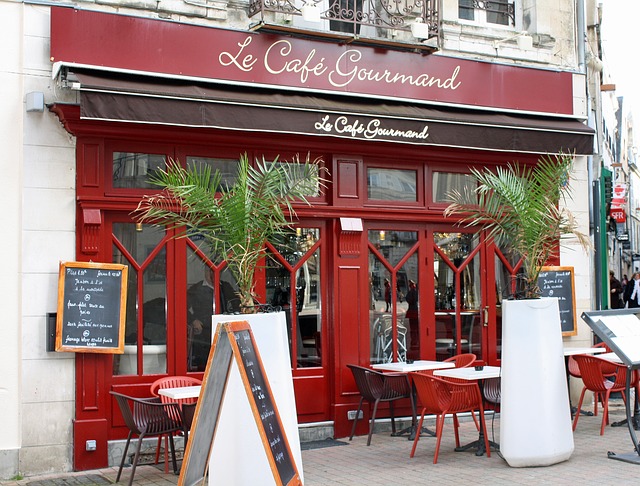Mastering the Basics of French Nouns, Articles, and Plurals
In this post we’ll look at French nouns, articles, and plurals. First, we’ll look at some basic concepts that you need to keep in mind about nouns in French. After that we’ll learn about articles, first definite, and then indefinite. Then we’ll see the partitive. Next we’ll take a look at gender in French. After that we’ll turn to plurals.
Noun Basics
Nouns are the words that refer to people, places, things, ideas. All nouns in French are either masculine or feminine. Definite (the) and indefinite articles (a/an) change depending on the gender (masculine or feminine) and number (singular or plural) of the noun. Both le and la become l’ before nouns beginning with a vowel or silent h. The preposition de (of) + the definite article is used to mean some.
Definite Articles
First, let’s look at definite articles, equivalent to English the.
| definite articles (the) | singular | plural |
| masculine | le / l’ | les |
| feminine | la / l’ | les |
- Le film est bon, mais le livre est meilleur.
The film is good but the book is better. - La maison est juste là, à la droite.
The house is right there, to the right. - L’école n’est pas loin de la gare.
The school isn’t far from the train station.
Indefinite Articles
Now let’s turn to indefinite articles, equivalent to a or an.
| indefinite articles (a/an) | |
| masculine | un |
| feminine | une |
- As-tu un billet ?
Do you have a ticket? - Ma copine a une nouvelle voiture.
My girlfriend has a new car.
Partitive
The partitive is some or any in English. It’s formed with the preposition de in French; remember that de + le = du and de + les = des.
| partitive (some) | singular | plural |
| masculine | du / de l’ | des |
| feminine | de la / de l’ | des |
- Donne-moi du sucre.
Give me some sugar. - J’ai des amis qui habitent pas loin d’ici.
I have (some) friends who live not far from here. - Elle m’a donné de l’argent.
She gave me some money.
You can go into more depth on the French partitive in this post.
No Naked Nouns
French nouns almost always come with an article, partitive, possessive, or something else. Bare nouns (water, students, gold) are fine in English, but not in French with very few exceptions. So you’ll use le, la, l’, les, du, de la, de l’, and des in French in places where you wouldn’t use the or some in English.
- Je bois de l’eau. (NOT:
Je bois eau.)
I’m drinking water. I’m drinking some water. - Je mange de la salade. (NOT:
Je mange salade.)
I’m eating salad. - As-tu de l’argent ? (NOT:
As-tu argent ?)
Do you have money? - Elle aime la musique coréenne. (NOT:
Elle aime musique coréenne.)
She likes Korean music.
Gender
Nouns referring to people or animals will follow biological gender.
| masculine | feminine |
| le garçon (boy) le taureau (bull) l’ami (friend, m.) | la fille (girl) la vache (cow) l’amie (friend, f.) |
Otherwise, the gender of nouns must be memorized. There are some patterns that can help. Generally, nouns ending in consonants or vowels other than –e are masculine. The endings –age and –ment are also typically masculine. Nouns ending in –e are often feminine, although there are plenty of exceptions. Other typically feminine endings are –tion, –son, and –té.
| masculine | feminine |
| le travail (work) le lait (milk) le vélo (bike) le menu (menu) le gouvernement (government) le sondage (poll) | la table (table) la glace (ice cream) la voiture (car) la maison (house) la conversation (conversation) la liberté (freedom) |
Plurals
To form plurals, most nouns simply add –s.
| singular | plural |
| l’homme (man) la femme (woman) l’hôtel (hotel) l’ordinateur (computer) | les hommes (men) les femmes (women) les hôtels (hotels) les ordinateurs (computers) |
Singular nouns that end in –s or –x don’t change in the plural, and singulars that end in –au or –eu take an –x instead of an –s. Nouns that end in –al or –ail in the singular end in –aux in the plural.
| singular | plural |
| le fils (son) la voix (voice) le jeu (game) le bureau (office) le travail (work) | les fils (sons) les voix (voices) les jeux (games) les bureaux (offices) les travaux (works) |
A few nouns have irregular plurals
| singular | plural |
| le ciel (sky) un œil (eye) le bœuf (ox, beef) un œuf (egg) un os (bone) | des ciels or des cieux (skies) deux yeux (two eyes) des bœufs (oxen, don’t pronounce the f or s) des œufs (eggs, don’t pronounce the f or s) des os (bones, don’t pronounce the s) |
Get on the road to speaking French with the Language Garage!
We hope you’ve enjoyed learning about French nouns, articles, and plurals. If you’d like to learn more:
- Create a free Language Garage account to access tons of French vocabulary, grammar, and culture.
- Follow us on Facebook, LinkedIn, BlueSky, Twitter, Threads, Mastodon, Instagram, or Pinterest. We publish lots of French vocabulary, grammar, and culture notes, so it’s a great way to pick up some new vocabulary and practice.
- Check out our other posts on French language, culture, and more.
- Enroll in affordable, flexible, and personalized private online French lessons or sign up for a small group online French class.




